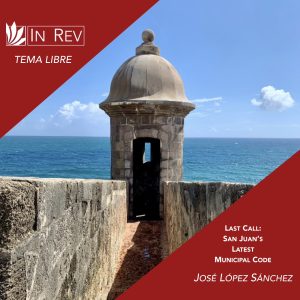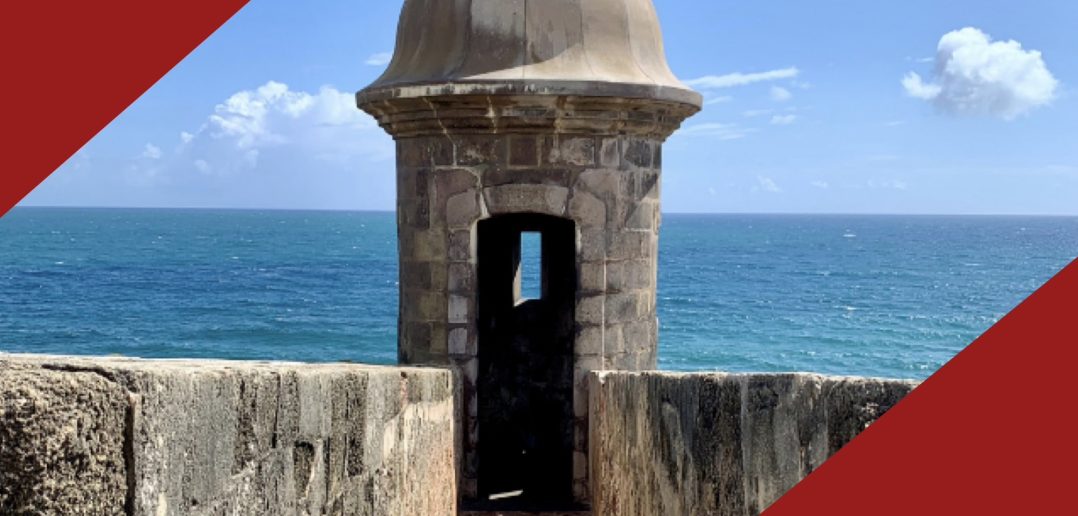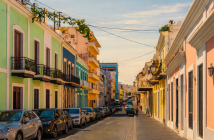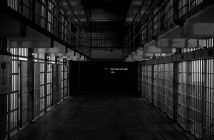
Commentary
By José López Sánchez*
Introduction
Throughout history, people have sought out taverns, bars, and dives to drink and socialize with others in an open and friendly manner. Traditionally, the last call is the signal made to indicate that the bar will be closing soon and that patrons should put in their final order and close out their tab before the bar stops taking orders. Across the world, “last call” orders have been implemented by local or state governments with varying degrees of success. Ever since the 21st Amendment was ratified,[1] marking the end of the Prohibition Era, individual states and counties have had the authority to regulate the sale and consumption of alcohol.[2] The City of San Juan, in its latest Municipal Code, adopted policies to increase restrictions on the time of sale of alcoholic beverages.[3]
As with any municipality in the United States, local governments are tasked with enacting the specific laws and regulations that would best suit them since they are more intimately aware of the specific needs of their communities.[4] This works for obvious reasons; what is good for a rural township in Minnesota might not be best for a bustling neighborhood in Manhattan. With varying cultures, there are varying needs that should be addressed individually, rather than tackled with broad strokes across a nation.[5] However, to arrive at the proper public policy choice, we must understand what has worked for other places with similar profiles.
I. Last Call Laws in the United States
Cities that experience heavy levels of tourism have a higher dependence on the sale of economic beverages and have had to extend their drinking expenditures over time.[6] We could assume that, to compensate for these high expenditures, these cities would most likely have to extend their hours of operations in at least some areas. For example, the state of Florida set last call statewide to 12:00 a.m.[7] However, multiple cities in Florida have passed exemptions to the law to extend these hours to accommodate tourists and the heavy economic activity they bring. The cities of Tampa, St. Petersburg, and Pinellas County set their last call at 3:00 a.m.,[8] Broward County and Key West at 4:00 a.m.,[9] and, most notably, Miami Beach set their general last call time at 5:00 a.m.[10] The City of Miami, in addition, set a general last call time at 3:00 a.m. and allowed for the extension of hours at 5:00 a.m. for specific businesses.[11] For example, convenience stores could only sell alcohol until 10:00 p.m.,[12] bottle clubs could remain open until 3:00 a.m. and nightclubs could request an exemption to remain open until 5:00 a.m.[13]
Recently, in a similar manner to the situation in San Juan, issues arose in Orlando, Florida when its local government passed an ordinance that placed the onus of safety and security on bar owners that would want to stay open until 2:00 a.m.[14] This new ordinance forces bars to close at midnight unless they apply for a special permit allowing them to stay open until 2:00 a.m. Additionally, they would also need to pay for off-duty police officers, metal detector wands, and other resources.[15] It is safe to assume that all of these costs would inevitably lead to lower profits for these bars, which would end up affecting the local economic development and create liability concerns for the bars and restaurants.[16] Similar ordinances have been implemented across the United States, with most states setting 2:00 a.m. last call orders statewide, with some implementing a small number of exceptions.[17] The exceptions are either regional or city-specific, or, in some cases, based on the day of the week.[18]
Macon-Bibb, a county in Georgia, is also facing similar issues to those encountered in San Juan. On September 5, 2023, commissioners in the county voted in favor of early closings.[19] Although bars were allowed to stay open an hour past their last call at 2:00 a.m., the city officials, in an effort to reduce crime, approved a measure that would force the bars to close at 2:00 a.m.[20] Removing the buffer effectively means the bars would have to make their last calls earlier to allow for patrons to finish their drinks and leave the establishments. On the one hand, in light of a recent wave of shootings outside of some of these businesses, city officials have supported this mandate, arguing that the bars are “creating a danger to the public”.[21] On the other hand, bar owners say the plan will inevitably lead to reduced revenues, and that it will force them to stop serving at 1:30 a.m., estimating that this could lead to a fall in revenue of $15,000-20,000 a year.[22]
II. Puerto Rico: Local Economic Impact
A recent study on the relationship between tourism and alcohol sales or promotion in Barcelona found that there is a higher density of businesses centered on the sale alcoholic beverages in areas with high levels of tourism. Specifically, it found that “Caribbean islands with high levels of tourism had more outlets and higher levels of alcohol production, import and distribution than islands with lower levels of tourism”.[23] Puerto Rico, as an island that attracts a great number of tourists, could potentially fall into this category of islands that have a large number of businesses focused on the sale of alcoholic beverages.[24]
San Juan’s Mayor, Miguel Romero (hereinafter, “Romero”), argues that higher levels of compliance with the Code will lead to a stronger economy and increased tourism in San Juan.[25] Meanwhile, bar owners are concerned with their economic viability after an extended period of closures due to the pandemic.[26] During public hearings, various bar and restaurant owners argued that this would disproportionately disadvantage local vendors, for the hotel industry would be exempted from such regulations.[27] A drop in revenue represents a real loss for businesses that are just becoming profitable after the closures from the COVID-19 pandemic. It can also lead to the closure of restaurants and bars since the industry is so volatile and difficult to break into during the first few years of operation. Diana Font, president of the Asociación de Empresarios del Viejo San Juan, indicated her disapproval of the ordinance saying this wasn’t the time for prohibition, closures, and stagnating the economy.[28]
As aforementioned, the Municipal Code[29] allows exceptions for hotels and their clientele. Therefore, only smaller businesses will be affected; those who are most likely to fail after a sudden change in their operations and revenues.[30] Romero expressed he was “morally convinced” it was the right thing to do.[31] However, there was no moral explanation for why this ordinance will only affect smaller businesses, while allowing hotels to continue business as usual.[32] The Municipal Legislature, and the Mayor, are simply shooting from the hip and seeing what sticks. Without an adequate study of the economic impact this measure could have on new restaurants and bars in the area, this measure could potentially be disguised as a protective measure for hotels while restricting not just local economies, but local behavior.[33] The Economic impact study performed to analyze and arrive at this conclusion was flawed from the beginning; local small business owners who were vocally against the implementation of the new municipal code claimed that San Juan ignored most of the small locales and emerging businesses in their Economic Impact Study, indicating that the study only covered businesses that generated more than $300,000 a year.[34] The Impact Study that was released by the Municipality is scarce on details regarding how they determined which bars and restaurants were included as part of the sample size. The Economic Impact Study, additionally, includes a single scenario, there’s no mention for different measures that were considered, or different arguments being made; the Municipality, furthermore, does not cite a single source for their information nor details about how the study was performed.[35] In general, the Economic Impact Study has serious flaws in that it does not provide the general audience a clear view of how it was performed.
Many individuals voiced different concerns over the adoption of the Municipal Code. One of these concerns was based on the special treatment given to the hotel industry. José R. Aponte, president of the Asociación de Bartenders de Puerto Rico called into question whether this creates a monopoly for hotels.[36] Additionally, Wilson Santiago, founder of the travel blog Mochileando, argued that this measure could be interpreted as a restriction solely for residents of Puerto Rico because, while guests at hotels could enjoy alcoholic beverages past 2:00 a.m., Puerto Rican residents could not visit these hotels to make such purchases.[37]
José R. Aponte also expressed concerns over the financial impact this Code would have on employees. He stated that, although a reduction of three hours does not seem like a huge issue at first glance, it is important to factor in that bartenders and servers tend to clock in later at night. This would mean a reduction in hours to half of what they would normally be, impacting the number of tips they receive and their effective salary.[38]Furthermore, others argued that this Code would have more negative consequences on the already regulated areas known for selling alcoholic beverages. For instance, José Silva, Vice President of the Asociación de Comerciantes de la Placita de Santurce mentioned that this city ordinance comes after having to abide by various other city ordinances that targeted the Placita de Santurce specifically.[39] The organization also argues that the city government is not looking at the chain of events this would unleash.[40]
In regards to the argument made by the City of San Juan that this Code could have a positive impact on crime rates, local economist, Heriberto Martínez, questioned whether this measure could have an unexpected impact on nearby municipalities, and whether this measure would simply displace crime while negatively affecting the still-recovering economy of San Juan.[41]
Heriberto Martínez also mentioned that the municipality included a survey to identify the impact to the local economy, but hampered the survey and created a bias in reporting by limiting responses to locals that report sales of over $300,000 annually; this excluded over 19,000 businesses in the affected area.[42] Even in the biased survey conducted by the municipality, there was evidence showing that the municipality would see a reduction of over $500,000 a year between city and state taxes, and a potential impact of over $7,000,000 to the industry.[43] Furthermore, the impact of the measure has been so poorly considered that Miguel Vega, president of the Asociación de Hoteles y Turismo de Puerto Rico called into question whether it would be applied adequately in mixed spaces.[44] He brought up the instance of casinos, where there is often a mixture of local consumers and tourists who may or may not be staying at the specific hotel within where the casino is located.[45] Since the city ordinance only allows for the exception of guests that are staying at the hotel, he questions how this would be implemented in practice.[46]
Romero indicated that there would be a committee of five people to be named that would evaluate the progress of the ordinance every 180 days.[47]Having a committee of five political appointees measure the success of the ordinance is a laughable measure that will simply lead to the continuation of the ordinance. To limit bias, the members of this committee should be, in part, local business leaders who have real day-to-day knowledge of the impacts of the measures.
III. Possible Impact of Last Call Laws on Violence and Safety
A December 2010 survey from the American Journal of Preventive Medicine titled The Effectiveness of Policies Restricting Hours of Alcohol Sales in Preventing Excessive Alcohol Consumption and Related Harms compared previous studies and events that caused an increase or decrease in hours of sales of alcohol and their effects on crime and accidents. [48] The study highlights a previous study coming from Australia which showed that the number of accidents did not change; the time those accidents occurred at simply moved based on the closing time of the restaurants and bars.[49]Some subsequent studies identified an increase in consumption and vehicle crashes when hours were pushed back to later in the evening.[50] In the comparison, they also mentioned that data was inconclusive when comparing 24-hour permits with limited permits.[51] The study’s author includes that:
[T]he United Kingdom’s Licensing Act of 2003 allowed sales of alcoholic beverages 24 hours a day in England and Wales, beginning in November 2005, subject to local licensing requirements. Three studies assessing the impact of this increase in hours of sale produced mixed results. Two studies found a relative decrease in harms (violent criminal offenses and alcohol-related maxillofacial trauma, respectively), whereas a third study found a relative increase in harms (alcohol-related assault and injury) after this increase in hours of sale.[52]
In summarizing his research, the author explains that multiple studies showed that maintaining hours of sale could potentially sustain the quality of life in communities and limit the harms of excessive alcohol consumption.[53] However, the author notes that little evidence was shown that could back up the claims on quality of life increase and if there could be an impact on law enforcement personnel when hours are expanded (one study did find an increase in workload for law enforcement when hours were expanded).[54] Furthermore, he includes that none of the studies that formed part of the research analyzed the economic impact on local communities when restricting the hours of alcohol sales, nor the impact on city and state tax revenues in these locations.[55]
A. Potential Local Impacts
The Municipal Code in question isn’t simply changing the hours when alcohol can be sold, it’s limiting who can sell alcohol past said hour,[56] thus giving exclusive access to only certain businesses to engage in the industry. By not making the law apply to all businesses in the area, the effects predicted by these past studies could be different since the behavior wouldn’t necessarily stop, it would simply migrate from one location to another. Some could even argue that it could increase the risk of vehicular accidents by forcing the people to go from one San Juan bar to another one in a different municipality, only to then go to their respective homes later on. This could very easily lead to an increase in traffic at later hours in San Juan, thus potentially hindering the problem the municipality is attempting to resolve. It could mean higher accumulations of crowds at 2:00 a.m. in the streets of San Juan, leading to an increase in unwanted drunken behavior that could become a problem for locals in the region.
Furthermore, it is possible to argue that, in Puerto Rico, closing local bars and restaurants earlier could mean that the population would engage in a cultural shift, where going out would simply happen at an earlier time and the problems the Code attempts to address would not be as easily resolved. In an informal survey from El Vocero, some San Juan residents welcomed the new Municipal Code and understood that it was the responsibility of business owners to adapt to the new rule.[57] However, this Code does little to effectively tackle the matter of noise pollution since it will still allow hotels to sell alcohol.
B. Recent Developments
A complaint was filed on the 27th of October of 2023 in Puerto Rico’s Federal District Court.[58] The Asociación de Empresarios de la Calle Loiza,along with various other local businesses, brought suit against the Municipality of San Juan and included the Financial Oversight and Management Board for Puerto Rico (FOMB) as an interested party to the litigation.[59] They argue that the FOMB would clearly be affected by the Ordinance due to a reduction in revenue they’d be able to earn from those late-night sales.[60]
The group requests a preliminary and permanent injunction ordering the Municipality to stop the implementation of Section 2.01 of the Public Ordinance.[61] They further request that the very same section of the Ordinance be declared unconstitutional.[62] The complaint contains various interesting arguments and some that may be inadequate. In the suit, the association argues that the implementation of a curfew would be a violation to their Due Process rights particularly because other businesses that form a specific profile would be allowed to engage in the activity, while they would be restricted from doing so.[63] They argue that this ordinance was enacted as a knee-jerk reaction to an incident that occurred on May 6th of 2023, where two tourists were murdered; they state that there was no relation between the businesses’ activities and the murder.[64]
The complaint implies that the Municipality changed course after the first study showed there would be no change in crime rates and pivoted to a noise reduction argument rather than a safety one.[65] They mention that the Municipality already has existing administrative tools that could be used to regulate the businesses and that a blanket curfew is too broad and too damaging to the local economy in comparison with the more direct approach they could take.[66] They further claim that city officials have admitted that Police Officers would not be visiting hotels to ensure compliance with the policy, which could lead to hotels selling beverages to residents instead of strictly guests lodging in the hotel.[67]
The argument they make is simple; the government is unjustly targeting their businesses and creating a policy that would affect too many when there are existing protocols that can achieve what they want without creating a burden on the local economy.[68] They understand that it’s discrimination because businesses that would be affiliated with hotels wouldn’t be impacted by the ordinance.[69] Their argument is further solidified by the statement that officers wouldn’t be enforcing the ordinance to the letter in hotels.[70] Laws are only effective if they can be enforced; if the officers would only enforce the closures of bars but won’t enforce the limitation of sales to those lodging in hotels, then there would be an uneven enforcement of the Ordinance that is heavily skewed against the local businesses. The U.S. District Court for the District of Puerto Rico determined that the plaintiffs in this matter did not fulfill two requirements to provide a preliminary injunction against the Municipality.[71] Judge Carreño Coll remarked that they did not show sufficient evidence that would indicate there would be imminent irreparable damage if the injunction wasn’t made, nor did they show whether they would be able to correct this matter in a state court.[72]
Conclusion
I argue that the arguments set forth to justify the implementation of the Code, in addition to the study conducted by the Mayor’s office, are inconclusive on the matter. Additionally, the measures are either inconsistent, excessive, or too lenient on some businesses. The measure’s language targets a specific subset of businesses as it impacts some businesses greatly and exempts others almost fully.[73] Enacting laws that protect the people of San Juan is a noble cause, and the local government should be able to regulate the sale of alcohol in the area. However, the sudden change in business regulations could lead to unforeseen consequences in the short-term and larger economic impacts in the long-term.
Furthermore, it shows a complete lack of care and decency to continue with an unchanged piece of legislation given the impressive amount of dissent heard during public hearings from local restaurants and bars.[74] Romero highlighted that it was an open process and denied that none of the recommendations weren’t considered.[75] Nevertheless, Romero did not point out which changes were made in response to the concerns raised by local groups affected by the new ordinance.[76] Additionally, the Municipality of San Juan, through the approval of this ordinance, has shown that certain businesses, such as hotel chains, are being favored over local businesses. We simply do not have enough evidence to accurately say whether this measure will accomplish what it sets to fulfill.
After considering the question of how this measure would be applied in casinos, another question came to mind: how would this change affect tourist behavior in determining where they will stay in Puerto Rico? Would this measure lead to a decrease in reservations with locals through Airbnb or other short-term rental spaces, thus affecting local property owners? Would this create a disparity in enforcement throughout the city? If part of the consideration for creating this ordinance is, presumptively, lowering police force costs, who would be enforcing the measure? There are many questions still left unanswered and little response from the Municipality regarding these real concerns.
* José López Sánchez is a third-year (3L) at the University of Puerto Rico School of Law and a Writer for In Rev. He graduated in 2016 from Carnegie Mellon University with a Bachelor of Science in International Relations & Politics. During his studies, he concentrated on asymmetrical warfare, terrorism, and grand strategy.
[1] U.S. CONST. amend. XXI, § 1.
[2] Robert P. George & David A. J. Richards, The Twenty-First Amendment, NATIONAL CONSTITUTION CENTER, https://constitutioncenter.org/the-constitution/amendments/amendment-xxi/interpretations/151 (last visited October 22, 2023).
[3] SAN JUAN, PR., CÓDIGO DE ORDEN PÚBLICO DEL MUNICIPIO DE SAN JUAN art.2.101 (2023).
[4] See Jake Sullivan, The Tenth Amendment and Local Government, 112 Yale L.J. 1935, 1935-1936 (2003); Joel Kotkin & Ryan Streeter, Introduction: Reviving Localism in America, in LOCALISM IN AMERICA 1, 1-2 (Joel Katkin & Ryan Streeter eds., 2018).
[5] Principles of Home Rule for the 21st Century, NATIONAL LEAGUE OF CITIES, https://www.nlc.org/wp content/uploads/2020/02/Home-Rule-Principles-ReportWEB-2-1.pdf, at 16 (2020).
[6] Susanna Puigcorbé et al., Assessing the association between tourism and the alcohol urban environment in Barcelona: a cross-sectional study, BMJ OPEN 2 (2020).
[7] FLA. STAT. §562.14 (2023).
[8] TAMPA, FLA., CODE OF ORDINANCES, CITY OF TAMPA, FLORIDA ch. 14, art. II, div. 10, § 14-150.1(a) (1990); ST. PETERSBURG, FLA., ST. PETERSBURG CITY CODE ch. 3, § 3-11 (2011); PINELLAS COUNTY, FLA., PINELLAS COUNTY CODE ch. 6, art. II, § 6-29 (1995).
[9] BROWARD COUNTY, FLA., CODE OF BROWARD COUNTY ch. 3, art. I, § 3-1(a) (2001); KEY WEST, FLA., CODE OF ORDINANCES, CITY OF KEY WEST, FLORIDA ch. 18, art. II, § 18-27(a) (2002).
[10] MIAMI BEACH, FLA., CODE OF THE CITY OF MIAMI BEACH, FLORIDA ch. 6, art. I, § 6-3(3) (1998); Evie Blanco, Judge approves change to Miami Beach’s South of Fifth last call from 5AM to 2AM, MIAMI HERALD (April 25, 2023), https://www.miamiherald.com/detour/article273170935.html (although Miami Beach in general has set their general time to 5:00 a.m., recent legal challenges to the ordinance have scaled back the closing time to 2:00 a.m. in some areas of South Beach after complaints from residents).
[11] MIAMI, FLA., CODE OF THE CITY OF MIAMI BEACH, FLORIDA ch. 4, § 4-3 (1998).
[12] Id.
[13] Id.
[14] Stephanie Buffamonte, Orlando bar owners push back on proposed ordinance calling for added security, FOX 35 ORLANDO (January 23, 2023), https://www.fox35orlando.com/news/orlando-bar-owners-push-back-on-proposed-ordinance-calling-for-added-security.
[15] Mark Lehman, New booze rules for downtown Orlando bars now in effect. Here are the details, CLICKORLANDO (May 1, 2023), https://www.clickorlando.com/news/local/2023/05/01/new-booze-rules-for-downtown-orlando-bars-now-in-effect-here-are-the-details/.
[16] See Buffamonte, supra note 14.
[17] Last call in every state in the U.S., ABC, (February 16, 2017), https://www.abc10.com/article/news/national/last-call-in-every-state-in-the-us/103-409160521.
[18] Id.
[19] A Georgia city is mandating that bars close earlier. Officials say it will help cut crime, ASSOCIATED PRESS (September 6, 2023), https://apnews.com/article/macon-georgia-bars-closing-time-crime-a1783c7da6b68a7a97aee8cc37daf00c.
[20] Id.
[21] Id.
[22] Id.
[23] Puigcorbé et al., supra note 6, at 5.
[24] See Puerto Rico registró record económico en el sector turístico en 2021, YAHOO NOTICIAS (20 de octubre de 2022), https://es-us.noticias.yahoo.com/puerto-rico-registró-récord-económico-164521491.html.
[25] La capital de Puerto Rico enfrenta un nuevo código que limitará la venta de alcohol, LISTIN DIARIO (August 8, 2023), https://listindiario.com/las-mundiales/el-caribe/20230808/capital-puerto-rico-enfrenta-nuevo-codigo-limitara-venta-alcohol_767354.html.
[26] Id.
[27] Id.
[28] Id.
[29] See Código de Orden Público del Municipio de San Juan, https://sanjuan.pr/wp-content/uploads/2023/06/Código-de-Orden-Público-del-Municipio-de-San-Juan-Impacto-Económico.pdf (last visited November 13, 2023).
[30] Dánica Coto, No More Late Nights at the Bar? Puerto Rico’s Capital to Curb Alcohol Sales, USA TODAY (August 9, 2023), https://www.usatoday.com/story/travel/news/2023/08/09/puerto-rico-san-juan-alcohol-sale-limit/70557245007/.
[31] Id.
[32] Stephanie L. López, Repercusiones económicas de las restricciones de venta de alcohol en San Juan, EL VOCERO (August 8, 2023), https://www.elvocero.com/economia/otros/repercusiones-econ-micas-de-las-restricciones-de-venta-de-alcohol-en-san-juan/article_bb6b5386-3543-11ee-95b8-c31523164755.html.
[33] Id.
[34] Id.
[35] Id.
[36] Id.
[37] Id.
[38] Id.
[39] Osman Pérez Méndez, Comerciantes de La Placita de Santurce denuncian ordenanza municipal discriminatoria, PRIMERA HORA (September 15 2021), https://www.primerahora.com/noticias/puerto-rico/notas/comerciantes-de-la-placita-de-santurce-denuncian-ordenanza-municipal-discriminatoria/
[40] Id.
[41] Id.
[42] López, supra note 31.
[43] Stephanie L. López, VÍDEO: Posiciones variadas ante nuevo Código de Orden Público en San Juan, EL VOCERO (August 9, 2023), https://www.elvocero.com/economia/otros/v-deo-posiciones-variadas-ante-nuevo-c-digo-de-orden-p-blico-en-san-juan/article_2e1f3d6a-362b-11ee-9bc5-a762610d9530.html.
[44] Id.
[45] Id.
[46] Id.
[47] Id.
[48] Robert A. Hahn, et al., Effectiveness of Policies Restricting Hours of Alcohol Sales in Preventing Excessive Alcohol Consumption and Related Harms, AM J. PREV. MED. 2 (2010), https://www.ncbi.nlm.nih.gov/pmc/articles/PMC3712516/.
[49] Id. at 6-7.
[50] Id. at 7.
[51] Id.
[52] Id.
[53] Id. at 9.
[54] Id.
[55] Id. at 9-10.
[56] See SAN JUAN, PR., CÓDIGO DE ORDEN PÚBLICO DEL MUNICIPIO DE SAN JUAN art.2.101 (2023).
[57] López, supra note 43.
[58] Complaint at 1, Asociación de Empresarios Calle Loiza, Inc. v. The Municipality of San Juan, Civil No. 23-1541 (D.P.R. October 27, 2023).
[59] Id.
[60] See Id. at 5.
[61] Id. at 2.
[62] Id.
[63] Id. at 10.
[64] Id. at 7.
[65] Id. at 8.
[66] See Id.
[67] See Id.
[68] See Id.
[69] See Id. at 10.
[70] See Id. at 8.
[71] Javier Colón Dávila, No ha lugar de jueza federal a comerciantes que retaron el Código de Orden Público de San Juan, NOTICEL (November 9, 2023)https://www.noticel.com/tribunales/ahora/20231109/no-ha-lugar-de-jueza-federal-a-comerciantes-que-retaron-el-codigo-de-orden-publico-de-san-juan/.
[72] Id.
[73] Id.
[74] Amplia participación en vistas públicas sobre Nuevo Código de Orden Público en San Juan, WIPR (July 19, 2023) https://wipr.pr/amplia-participacion-en-vistas-publicas-sobre-nuevo-codigo-de-orden-publico-en-san-juan/.
[75] Stephanie L. López, VÍDEO: Posiciones variadas ante nuevo Código de Orden Público en San Juan, EL VOCERO (August 9, 2023), https://www.elvocero.com/economia/otros/v-deo-posiciones-variadas-ante-nuevo-c-digo-de-orden-p-blico-en-san- juan/article_2e1f3d6a-362b-11ee-9bc5-a762610d9530.html.
[76] Id.




